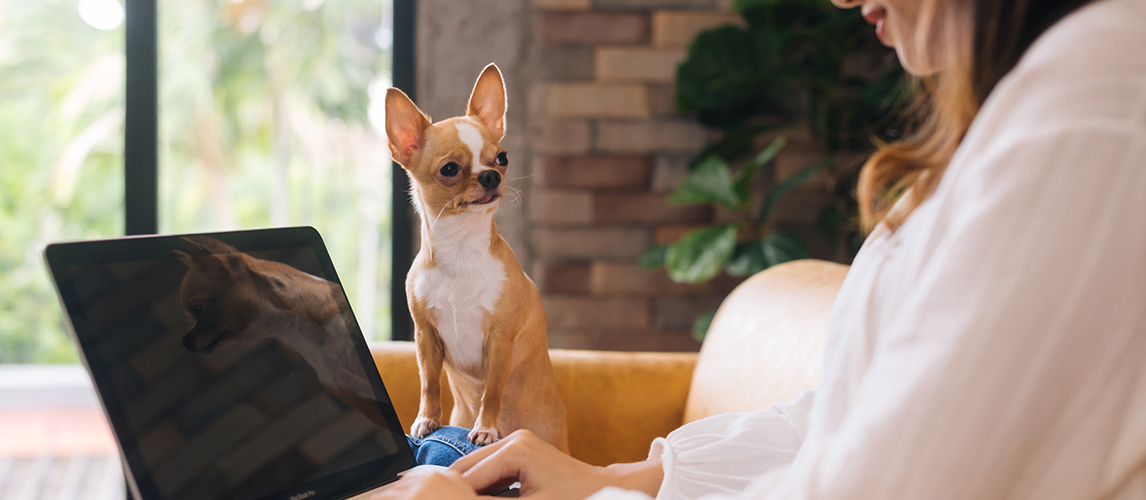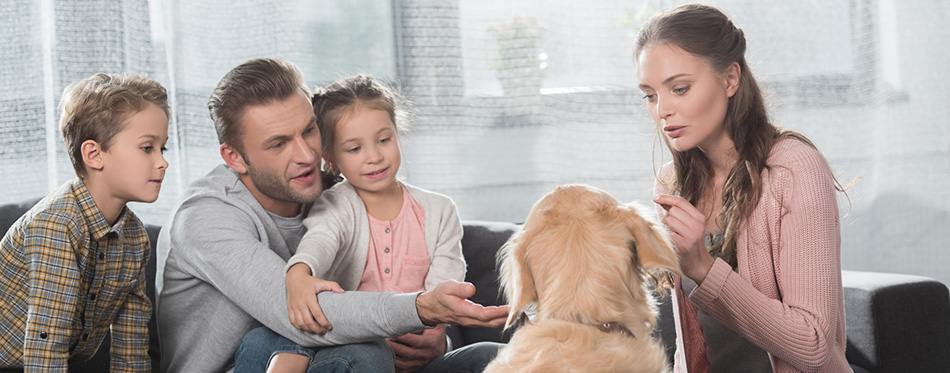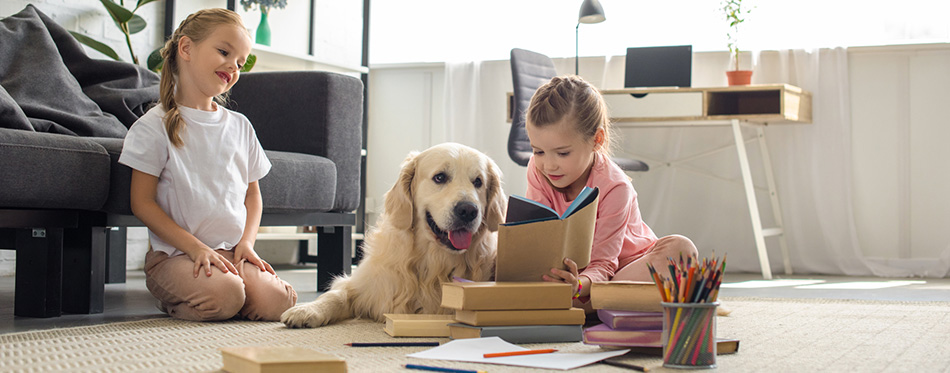The possibility that jealously exists in other social species besides humans has been deliberated since the age of Charles Darwin. And we dog owners certainly aren’t surprised. After all, how many times have you been snuggled up on the sofa with your partner only to hear a high-pitched whine coming from across the room? Alternatively, it’s become commonplace in your home when hugging a family member for your dog to come hurtling across the room to join in the cuddle. In this article, we intend to answer whether dogs are in fact jealous creatures and why, as well as offering advice for dealing with jealous behaviors.
Can Dogs Feel Jealousy?
You’ll be unsurprised to discover that dogs can indeed feel jealousy. This isn’t just mere speculation. In 2014, researchers Harris and Prouvost from the University of California conducted a study where they found that when owners interacted affectionately towards objects, dogs were more likely to exhibit jealous behaviors like snapping, pushing themselves between their owner and said object, and touching their owner.
On a similar note, in 2018 Cook et al used noninvasive brain imaging to measure activity in a dog’s amygdala – a collection of cells near the brain’s base that serves a role in aggressive behavior. Their results gathered from thirteen furry participants showed that more aggressive dogs, when watching their owners give food for a fake realistic dog, had increased activation in their amygdala, thereby adding to the rapidly expanding body of literature on dog jealousy.
Why Do Dogs Get Jealous?
One possible explanation for why dogs feel jealousy is due to their early upbringing. As dog litters sometimes consist of up to eight puppies, from birth dogs have been forced to compete for parental resources such as attention, affection, and food. In other words, young puppies may have self-taught themselves to practice behaviors equated with jealousy and make themselves aware of interactions occurring between their parents and siblings so they received parental resources more frequently.
Referring back to Harris and Prouvost’s 2014 study, the researchers also remark that given how long dogs have been domesticated for, it’s very likely that dogs have emotionally bonded with humans to such an extent that their socio-communicative skills have created their capacity for jealousy. Put differently, dogs have become highly sensitive to human attentional cues that now, they also cannot escape “the green-eyed monster”.
How to Deal with a Jealous Dog
Although it’s certainly fascinating to mull over why dogs get jealous, we bet you didn’t just click on this article to contemplate the various theories presented. More likely, you’re here to learn how to combat jealousy in dogs.
- Feed pets separately
If you’re the owner of multiple pets, envy is bound to arise at some point in time – especially between cats and dogs. A rumbling stomach will only advance these emotions! To that end, we advise feeding your pets in separate locations so conflict won’t arise during mealtimes.
- Ignore your dogs for a while after arriving home
Although you may feel incredibly guilty by not giving any attention to your dogs after arriving home for the day, this point of where feelings tend to run wild. After they’ve calmed down a little, you’ll then be able to effectively attend to their emotional needs.
- No longer reward your dog for displaying signs of jealousy
We bet when your dog first started displaying signs of jealousy, you probably felt amused if not a little smug. After all, extensive research has shown that jealously is a sign of love. However, whilst you were feeling appreciated by your pet’s actions, your dog was taking a mental note that their actions were lucrative.
From now on, when your dog displays signs of jealousy, don’t reward them. Rewarding them ranges from not removing them from your lap after displaying jealous behaviors to even looking at them. And we guarantee that you’ll be pleasantly surprised at how quickly your dog alters their behavior once they realize a reward is off the table.
- Remove the element of competition for positivity
If you find yourself in a situation where your jealous dog acts out around a certain person or pet, it’s time to change their mindset about that individual or animal. And the path towards success is through using positive reinforcement methods so your dog begins to equate this individual with happiness. To better explain, whenever this person or dog turns up, this is the point where you should take them out on a fantastic adventure or play their favorite game. Over time, your dog will start to associate this individual or pet with their happiest memories and not the emotion of jealousy.
- Spend enough time with your pet
Does it seem as though your dog became jealous out of nowhere? This may be less to do with other people and more to do with the fact that your dog misses receiving attention from their pet parent. Ensuring that your dog knows how important they are to you by setting aside time for playtime and activities to improve your relationship may solve their jealousy problems.
- Treat training may be your saving grace
If hugging another person elicits a jealous response from your pup, training them to not react is a tasty way to quash their jealousy. Armed with a pack of your dog’s favorite treats, perform each step of hugging (for example, turning to each other, reaching out your arms, etc.). All the while rewarding your dog for remaining calm with their tasty dog treats. If your dog starts to act jealous, return to the last sequence that they deemed tolerable and go from there.
After what we’re sure will be many attempts of acting out “hugging”, your dog will learn to accept your actions and will end up wanting a treat more than your attention! And soon enough, they’ll learn to associate hugging with positivity without treat-based incentives.
Final Thoughts
Don’t expect a dog who has spent years being jealous of your cat to simply wake up one morning with a different outlook. Training Fido to control their jealous tendencies will take time, that’s for sure. But we promise it will be worth it when your dog learns to alter their behavior through the power of positive reinforcement.
Sources:
- Stanley Coren, PhD, Do Dogs Feel Jealousy or Envy? – American Kennel Club
- Judit Abdai, Investigating Jealous Behaviour In Dogs – Springer Nature Limited
- Christine R. Harris, Jealousy in Dogs – Plos One
- Sue Manning, Study Drops Hints That Dogs Could Get Jealous – Phys









